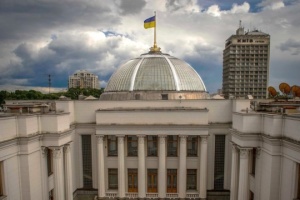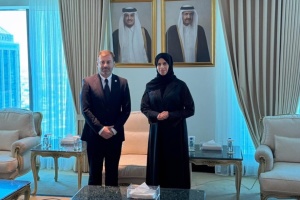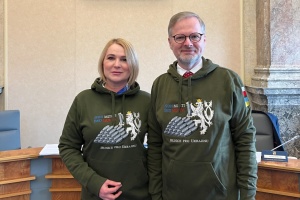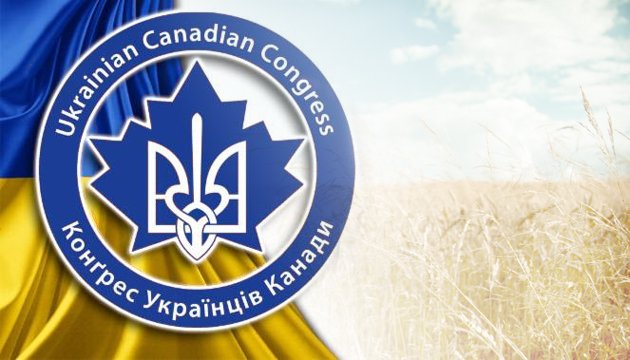
This day in history
Initially, the organization was known as the Ukrainian Canadian Committee and was created to coordinate the activities of local Ukrainian organizations and the cooperation of the Ukrainian community with the Government of Canada. One of the co-founders and chairmen of the committee was Vasyl Kushnir. Today, the Ukrainian Canadian Congress is a public representative council that brings together 33 Ukrainian Canadian organizations and its branches, with a center in Winnipeg. The Ukrainian Canadian Congress includes six provincial councils (Ontario, Manitoba, Saskatchewan, Alberta, British Columbia and Quebec), 34 departments in cities throughout Canada (from Montreal to Vancouver), and a number of separate committees. Currently, 1.2 million Ukrainians live in Canada. Canada is the third largest ethnic Ukrainian nation (after Ukraine and Russia). Canadian Ukrainians are the largest Slavic diaspora in the territory of this North American country. During its history, Ukrainian emigration in Canada has made a significant contribution to the development and prosperity of this country. It is difficult to name at least one branch of the national economy of Canada, its science, culture, sports, politics or business, in which Ukrainians would not participate. Among the most famous are: Peter Jacyk, Ramon Hnatyshyn, Leo Mol, Chrystia Freeland, Eugene Melnyk, Edward Stelmach, Robert Bondar and many others.
Events of the day:
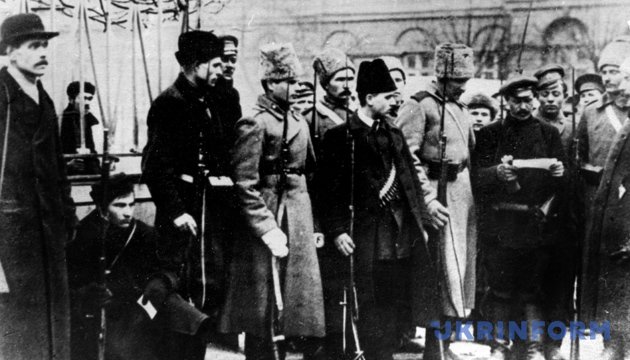
A hundred years ago, on November 7, 1917, in the capital of the former Russian Empire, Petrograd, in the wake of the armed uprising, state power was in the hands of the leadership of the Bolshevik Party led by Vladimir Lenin. Direct leadership of the uprising was carried out by the Military Revolutionary Committee of the Petrograd Soviet led by Lev Trotsky. After the February Revolution and the abdication of Emperor Nicholas II, the Constituent Assembly, the convening of which was the main task of the Provisional Government, was to decide on the further state system. Simultaneously with the organs of the Provisional Government in Russia there was a system of councils of soldiers and workers, and later peasant deputies. However, their activities were not legalized, although the impact on the situation in the country, especially in Petrograd, was sufficiently significant to block the activities of the Provisional Government. In the autumn of 1917, Russia saw a situation that had all signs of an economic and political catastrophe. This caused a sharp discontent of the people. The Provisional Government lost credibility. Actually, this was what the Bolsheviks used. On November 6, the Central Committee of the Bolshevik Party decided to commence an armed uprising in Petrograd, and on the night of November 7, 1917, the military units subordinated to the Bolsheviks occupied the Main Office, the Mykolaiv and Warsaw stations, the Central Power Station, the State Bank, and the Central Telephone Station. In the morning they controlled almost the entire city. At about 19.00, the Provisional Government, located in the Winter Palace, was given an ultimatum. After refusing to execute it, at 21.40, a blank shot was made from the Aurora cruiser, which meant the start of the Winter Palace assault. At night, the 2nd Congress of the Soviets of Workers 'and Soldiers' Deputies, whose meeting began the night before, stated the results of the coup and formed a Council of People's Commissars headed by Lenin, which included only the Bolsheviks. In Ukraine, the establishment of the Bolsheviks' power provoked resistance, both from supporters of the Provisional Government, and the Central Rada. The situation in Kyiv was very complicated. In the first days after the October coup in Petrograd, taking into account the rather neutral position of the Central Rada, relatively influential Bolshevik organizations in Ukraine concentrated all their efforts on fighting the forces of the Provisional Government. After three-day battles of November 9-11, the government troops left Kyiv under pressure from the Bolshevik forces and certain Ukrainianized units. However, the Central Rada did not allow the transition of power to the hands of the Bolsheviks and after some time, through its Third Universal, declared itself the supreme authority in Ukraine.
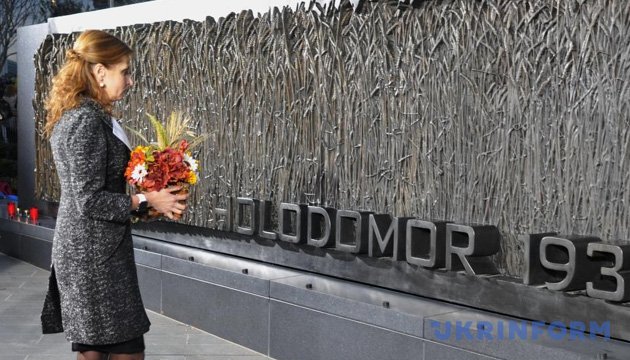
On November 7, 2015, Washington hosted a historic ceremony on the opening and consecration of the Holodomor Memorial to Victims of the Ukrainian Famine-Genocide of 1932–1933 dedicated to the memory of millions of Ukrainians who were victims of Stalin's policy. On October 13, 2006, the U.S. Congress passed and President George W. Bush signed the U.S. law "To authorize the Government of Ukraine to establish a memorial on Federal land in the District of Columbia to honor the victims of the manmade famine that occurred in Ukraine in 1932-1933." In July 2012, the final design of the monument was approved at an open meeting of the U.S. Commission of Fine Arts, and in September of the same year it was approved by the U.S. National Capital Planning Commission.
Anniversaries of the day:
160 years since the birth of Dmytro Bahaliy (1857-1932), a Ukrainian historian and public figure, one of the founders and academician of the All-Ukrainian Academy of Sciences. He was born in Kyiv. He took an active part in public activities, was the organizer of higher education in Ukraine, twice elected chairman of the bureau of the section of Ukrainian scientists. As a historian, Bahaliy was formed under the influence of the views of his teacher Volodymyr Antonovych. In his conception of the historical process, he was a supporter of ethnographic, federal and regional views, which was also observed by Nikolay Kostomarov. He is the author of more than 200 works related mainly to the history of the Sloboda, Left-Bank and Southern Ukraine of the XV-XVIII centuries.
150th birthday of Marie Skłodowska-Curie (1867-1934), a French and Polish physicist, chemist, first female laureate of the Nobel Prize (1903, 1911). Together with her husband, Pierre Curie, she laid the foundations for the doctrine of radioactivity, opened polonium and radiance.
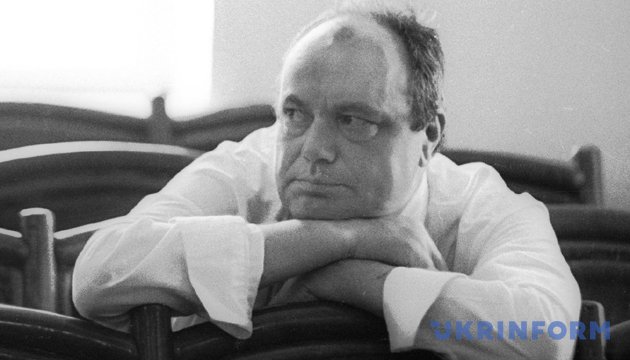
Mykola Vinhranovsky (1936-2004), a Ukrainian poet, prose writer, film actor, screenwriter and director, was born on this day. A laureate of the National Taras Shevchenko Prize of Ukraine, Volodymyr Vernadsky Prize and Antonovich Prize (the U.S.). Vinhranovsky was born in Pervomaisk, Mykolaiv region.
Death anniversaries:
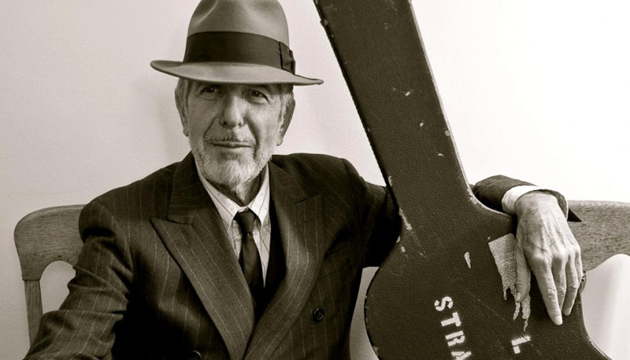
Leonard Cohen (1934-2016), a famous Canadian singer, writer and songwriter, died last year. He was born in Montreal, and in the mid-1960s he moved to the United States, where his career as a musician began. He is the author of such world-famous songs as Hallelujah, Suzanne and So Long, Marianne. Cohen is a laureate of numerous awards, including Grammy. In 2008, his name was written in the Rock and Roll Hall of Fame. Cohen's last album, "You Want It Darker," was released three weeks before his death.

